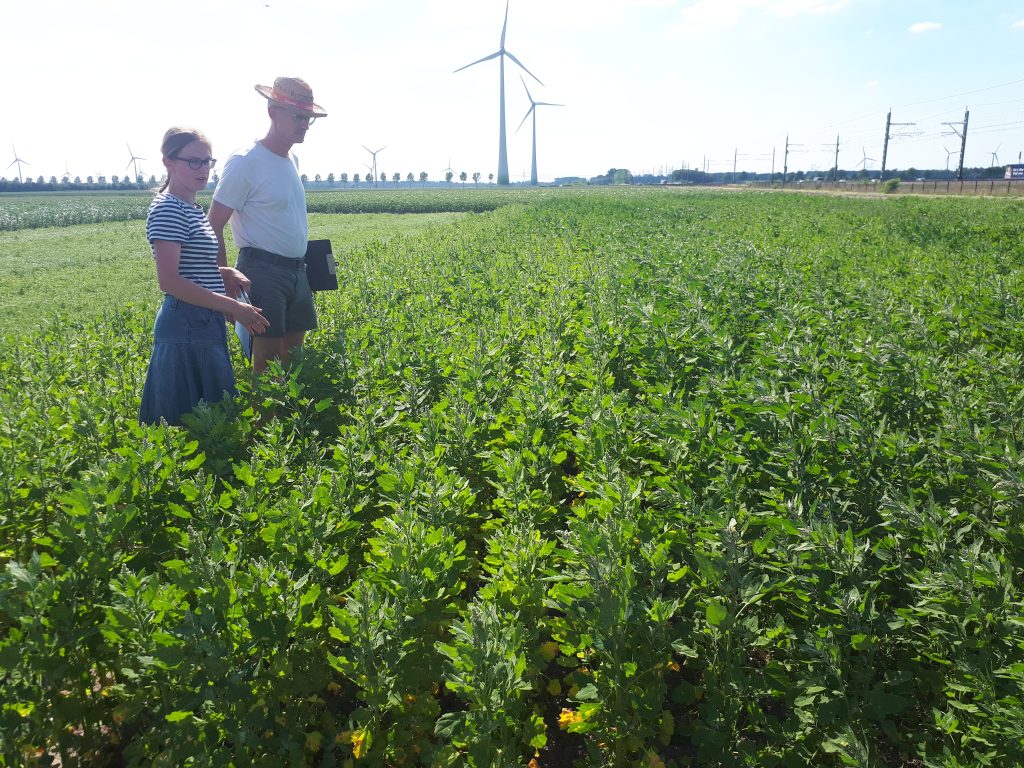The Smart Protein project pinpoints four crops that can support the plant-based market

The EU-funded Smart Protein Project is encouraging Europe’s farmers to grow lentils, quinoa, fava beans, and chickpeas to feed into the rapidly growing market for plant-based foods.
The project’s latest work is a series of leaflets, compiled by food awareness organisation, ProVeg International and several partners, that summarises information about the best climatic conditions and best agricultural practices for each of the four crops.
“We hope the leaflets will prove not only to be informative but also inspiring for food producers who want to benefit from the tremendous growth of Europe’s plant-based sector,” Jasmijn de Boo, CEO of ProVeg International, said.
“The transition to alternative protein in Europe is in full swing and we need farmers to rally round and help provide home-grown ingredients for these climate-friendly food products that Europeans are increasingly buying,” de Boo added.
Healthy growth
The plant-based sector in 13 European countries has grown by 21% between 2020 and 2022.
A recent survey carried out by ProVeg, called “Evolving appetites: an in-depth look at European attitudes towards plant-based eating” found that 51% of meat eaters in Europe claim they are actively reducing their annual meat consumption, up from 46% in 2021.
The survey also found that legumes take centre stage: 43% of Europeans are replacing animal-based foods with legumes and legume-based foods, This is a clear sign for Europe to adopt a more diverse, legume-centric agricultural approach. The Smart Protein project is pioneering this change, strategically placing fava beans, lentils, chickpeas, and quinoa at the very core of its plant-based innovation efforts.
Advice on how and where to grow
The Smart Protein leaflets serve as a quick reference guide for farmers and provide essential information for each crop.
Chickpeas are identified as being very adaptable to the Portuguese climate where they can produce very good yields. In northern latitudes, Smart Protein points out that it is necessary to choose the best varieties, such as Ascochyta.
Fava beans have been found to grow well in Denmark, even under low temperatures. In Ireland, the Fanfare variety was found to have performed really well.
The ideal soil for quinoa is loamy, well-drained and well-endowed with organic matter. In Ireland, it is challenging to reach technological seed maturity. For this reason, seed drying technology is highly recommended. Italy, the Netherlands and Portugal have been identified as good locations to grow quinoa.
When growing lentils, the leaflets note that good crop rotation and mechanical weeding are required, since they are not very competitive against weeds. Intercropping with oats can reduce weed competition.
ProVeg worked with the following partners on the Smart Protein project: UNIUD, GLANBIA, Beotanics, INTIA, DELPHY, UCPH, ARCA, QuMa and Equinom.
To view the leaflets, follow this link.
ENDS
Notes to Editors
For media inquiries, email Peter Rixon or Jillian LaBruzzo at media@proveg.org
About ProVeg International
ProVeg International is a food awareness organisation with the mission to replace 50% of animal products globally with plant-based and cultivated foods by 2040. Our vision is a world where everyone chooses delicious and healthy food that is good for all humans, animals, and our planet.
About the Smart Protein Project
Smart Protein is a €10-million, EU-funded project that seeks to develop a new generation of foods that are cost effective, resource efficient, and nutritious. Alternative protein sources such as legumes and side streams from beer and pasta production are used to generate plant-based ingredients and plant-based meat, seafood, dairy products, and baked goods.
